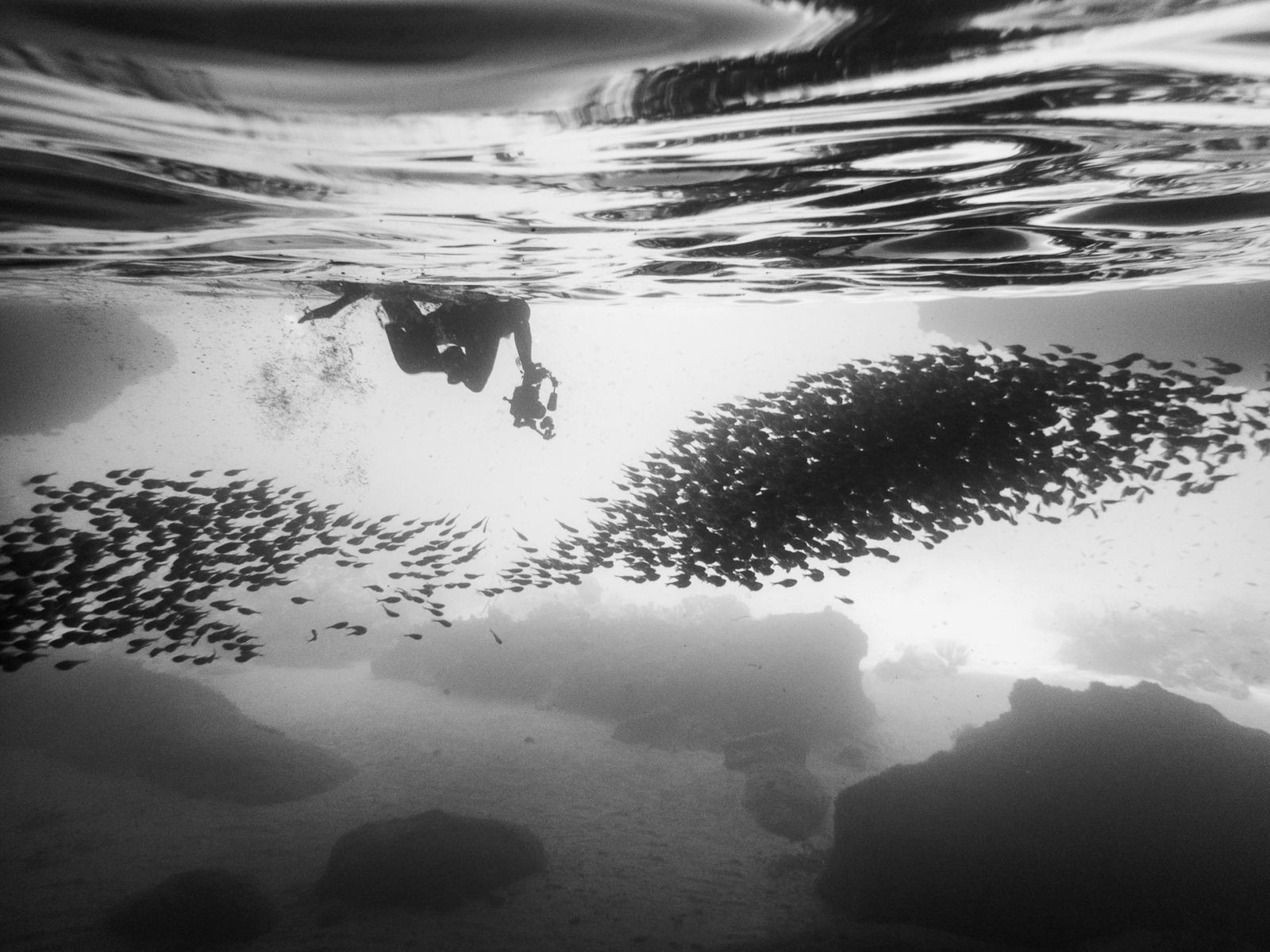UBC biologist receives $1.9 million Moore Foundation grant
March 11, 2020

March 11, 2020

An award from the Gordon and Betty Moore Foundation will enable UBC biologist Patrick Keeling to conduct high-risk, high-reward research into how symbiotic microorganisms evolve, and how they serve critical roles in coral reef ecosystems.
The $1.9 million grant is part of the Foundation's Symbiosis in Aquatic Systems Initiative investigator program—the new funding provides unrestricted support to scientists to pursue innovative, risky research that has high potential for significant conceptual and methodological advances.
Keeling studies protists, complex single-celled organisms that form symbiotic relationships with most other forms of life. The support will allow him to study a range of related topics, from how bacteria take up residence within a protist cell to how host protists themselves can be harboured by animals such as coral. Protists perform many functions on healthy coral reefs, but only a few have been studied in any detail.
"The investigator awards will serve as a flagship for the Symbiosis in Aquatic Systems Initiative and are expected to push the frontier of aquatic symbiosis research by providing stable and ample support for brilliant scientists who will take risks that drive creative work," said Sara Bender, program officer of the Symbiosis in Aquatic Systems Initiative.
Investigators will pursue diverse research topics and expand knowledge about aquatic symbiosis. They will also have the opportunity to develop and strengthen collaborations at annual gatherings.
“Protists offer an interesting nexus in symbiosis research, because they can both live inside other cells and have cells living inside them, sometimes at the same time,” said Keeling.
“We can use them to gain insights into fundamental evolutionary processes that are hard to study in any other system. But because they’re so understudied, we also have a pressing need for basic exploration into the diversity of protists and their symbiotic interactions.”
Keeling's work has uncovered clues into the evolution of the parasites that cause diseases such as malaria, as well as provided a better understanding of the diversity of microorganisms that make up the coral reef ecosystem. He has discovered a number of new microscopic organisms, including a group of long-haired microbes his team named after Canadian band Rush, and one named after the fictional monster Cthulhu. Keeling is also an avid photographer of microorganisms and corals, and believes art can instill an interest in the microbial world.
“I'm looking forward to the spark when we bring these researchers together. While the foundation’s role is to provide resources to under-funded but important areas of science, it will be up to this group of investigators to spin up new ideas and help each other make those ideas even sharper,” said Jon Kaye, director of the Symbiosis in Aquatic Systems Initiative.
The Gordon and Betty Moore Foundation fosters path-breaking scientific discovery, environmental conservation, patient care improvements and preservation of the special character of the Bay Area. Visit Moore.org or follow @MooreFound.
We honour xwməθkwəy̓ əm (Musqueam) on whose ancestral, unceded territory UBC Vancouver is situated. UBC Science is committed to building meaningful relationships with Indigenous peoples so we can advance Reconciliation and ensure traditional ways of knowing enrich our teaching and research.
Learn more: Musqueam First Nation